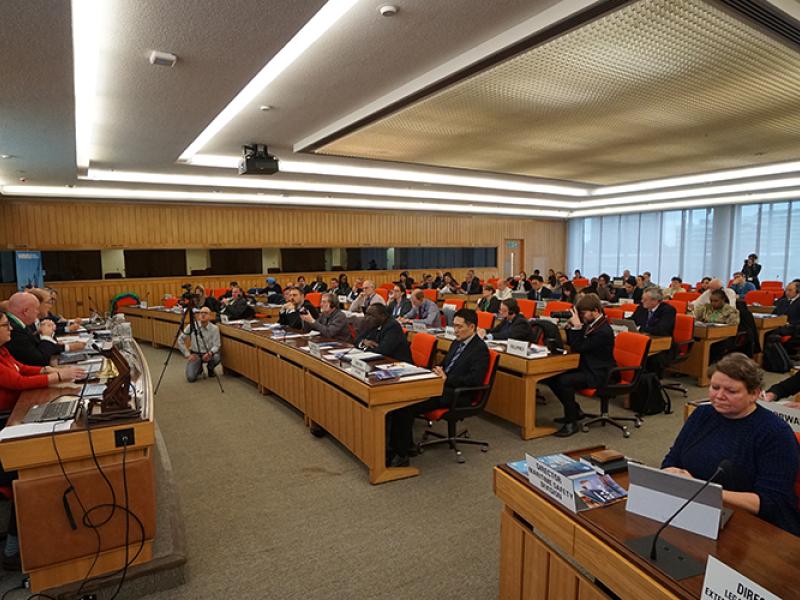The ITF has represented the views of global maritime professionals at the 20th general assembly of the International Association of Maritime Universities (IAMU) in Tokyo, Japan, 30 October to 2 November 2019.
The event was attended by 180 specialists of maritime universities and industry experts from 27 countries.
Professor Takeshi Nakazawa, IAMU executive director, expressed the view that the development of maritime autonomous surface ships (MASS) and automation is it outpacing the capacity of the human factor. He said that maritime education and training (MET) must change in order to match this challenge.
Furthermore, professor Nakazawa said there needs to be closer attention to how the maritime labour market will be influenced by the implementation of advanced technologies, such as digital technology, robots, artificial intelligence and MASS.
ITF maritime safety committee IMO expert, professor Sergey Aysinov, joined the panel discussion ‘Is there a future for seafarers with the coming of Maritime Autonomous Surface Ships (MASS)’.
Professor Aysinov pointed out that:
- GDP growth will lead to shipping development and demand
- one manufacturer’s optimistic vision is that in 2040, 14 percent of the world fleet will have some sort of MASS equipment aboard
- lifetime total ship costs vary sector to sector, however, as a general rule: 40 percent capital costs, 40 percent fuel costs, 20 percent ships operating costs (25 percent of which are crew costs), crew cost is between 3-6 percent of the lifetime total ship cost
- MASS is a continuation of industry automation likely leading to a reduction in the number of crew members, thus the quality of maritime professionals is important
- management level officers will need to upskill
- some equipment maintenance is likely to be transformed from on-board to shore-based/remote
- deck officers and engine officers need some additional education similar to that of electro technical officers
The panel touch upon on the following major issues as well:
- In 2020, the International Convention on Standards of Training, Certification and Watchkeeping for Seafarers (STCW) 1978, as amended, will be open for revision. In foreseeing the likely reduction in market demand for cadets and ratings, the revised discussion should guarantee a robust cadet’s navigation practice. There will be a study regarding the practicality on cadetship training availability presented at the IMO in 2020
- A recent publication containing skills required/expected from maritime professionals was presented Global Maritime Professional: Body of Knowledge.
The views and positions of the ITF received support from the panel as well as the audience. No matter how technologies may or may not bring differences in maritime workers’ career paths, the authentic knowledge, skills, competence, experience and expertise of seafarers will be appreciated. On that note, education and training is an essential part of the maritime human element.




